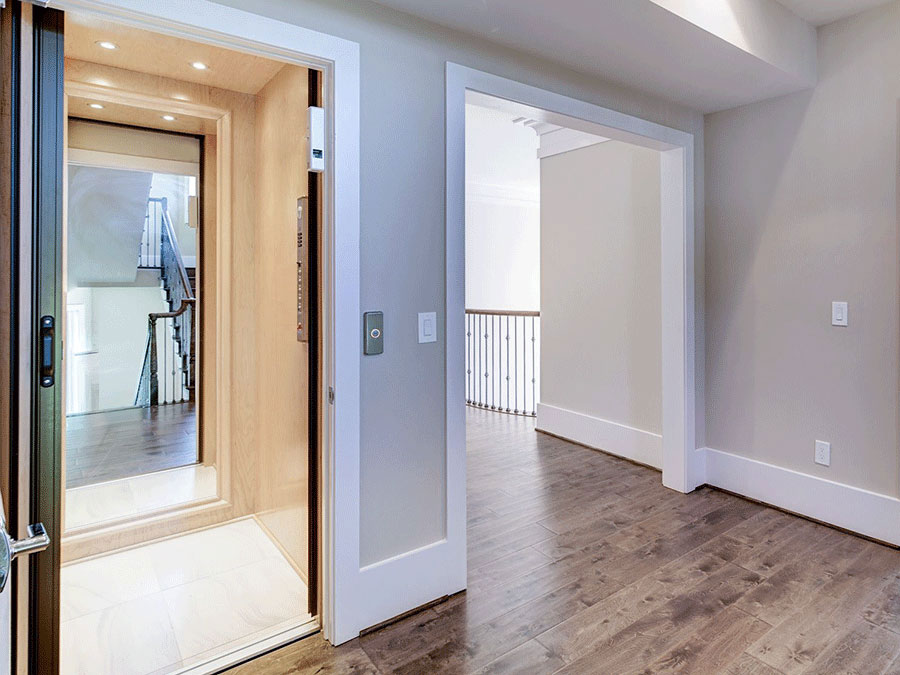You’ve found your dream home and it even has an elevator, but are there special considerations for this type of equipment? Buying a home with an elevator offers a unique blend of convenience and luxury, catering to a variety of needs ranging from accommodating aging family members to improving the property’s overall accessibility and value. However, prospective buyers should carefully consider several factors when buying a home with an elevator. Important considerations include the maintenance and operational costs associated with the elevator, its impact on the home’s layout, safety features, compliance with local building codes and regulations. Additionally, evaluating the elevator’s age, reliability, inspection and maintenance history are important factors to ensure it meets both current and future needs.

When buying a home with an elevator you’ll want to give special consideration to the following items:
Age and Condition
It’s important to establish the age and overall condition of the elevator. You’ll want to find out how old the elevator is and if it has been well-maintained. A newer elevator with a good maintenance history will be less likely to require repairs or replacement in the near future. Bear in mind most home elevators have a life expectancy of about 20-25 years, if its been serviced on a regular basis.
Inspection Records
There are typically two different types of elevator inspection reports recommended in a real estate transaction. The first inspection report will be for the initial installation documenting the elevator met all code requirements and was properly tested and accepted by a licensed elevator inspector. A second inspection will be needed at the time of sale, and should be done with a third party elevator inspector or elevator installation company. While an initial acceptance report is great, elevator codes change and equipment ages. Its extremely important to examine the elevator in its current state and verify it is in good working condition and up to date with all current codes. If there’s not any inspection records you’ll want to insist on having an inspection done.
Building Codes
Local building codes are different than elevator codes and its also a good idea to make sure the elevator installation also complies with all local zoning and building codes. The easiest way to do this is request a copy of the initial building permit. This can usually be done online at the local county property records site. Examples of issues may include no building permit record on file where a property has been modified to install an elevator that doesn’t meet code.
Warranties
Check for any warranties and existing service agreements. If the elevator is a newer model it may be covered by a manufactures warranty or installation warranty. These are two different types of warranties, the manufactures warranty will typically cover parts only (free from defect) and the installation warranty will cover adjustments from the installing company. You’ll also want to verify any existing warranties are transferable and if the seller has a service agreement in place.
Capacity
Verify the weight capacity of the elevator and make sure it’s large enough to accommodate your needs and any potential future needs. For example there may be a need to carry a power operated wheelchair that would require a higher weight capacity.
Check for Recalls
Ask if there are any known defects or recalls with the elevator. Over the years there have been recalls on some home elevator models, it should be confirmed there are no pending recall issues. If the seller is aware of any defects or issues with the elevator they should be disclosed to potential buyers.
Operation
Be clear on how to use the elevator and ask questions. It’s important to familiarize yourself with its operation to ensure a smooth transition into your new space. Modern residential elevators are typically user-friendly, equipped with simple controls and clear instructions. Before finalizing your purchase, request a demonstration from the seller or a technician to learn how to operate the elevator, including how to use emergency features, understand basic troubleshooting, and perform routine checks. Making sure you are comfortable with its use will give you confidence in this convenient home feature.
Manuals
Obtaining the manuals is an essential step to ensure you have all the necessary information for its operation and maintenance. The owners manuals typically include detailed instructions on usage, troubleshooting guides, and maintenance schedules. Be sure to request these documents from the seller and keep them in an accessible location. Having the manuals on hand will help you quickly address any issues and maintain the elevator.
Manufacturers Information
When purchasing a home with an elevator, it is important to obtain the manufacturer’s contact information in addition to the installation company information. This will allow you to update the registration information and access support if needed. Request this information from the seller, including the manufacturer’s phone number, email address, and website. This information can also sometimes be found in the owners manual. Having direct contact with the manufacturer ensures you can quickly resolve any issues and keep your elevator functioning smoothly.
Insurance Changes
It’s important to understand the insurance implications. Contact your insurance provider to discuss how the elevator might affect your homeowner’s policy. You will need additional coverage to protect against potential elevator-related damages or liabilities.
Leave Time
Leave plenty of time to address any considerations that may arise. This includes arranging for professional inspections, understanding the maintenance requirements, and reviewing warranty options. Allowing ample time ensures you can thoroughly evaluate the elevator’s condition, secure necessary documentation, and make informed decisions without feeling rushed. Taking these steps will help with a smooth transition, and long-term satisfaction with your new home elevator.
Ask a question or leave a reply.
Please register or log in to ask a question.